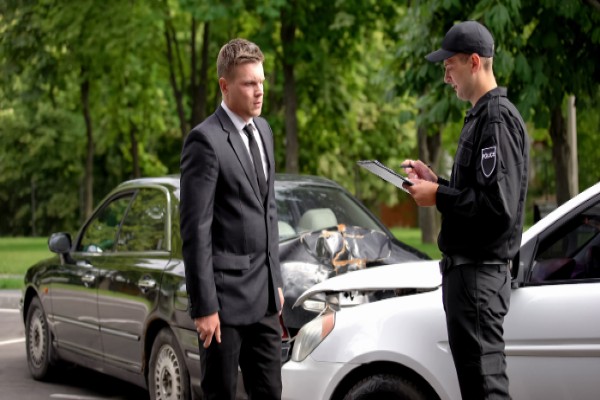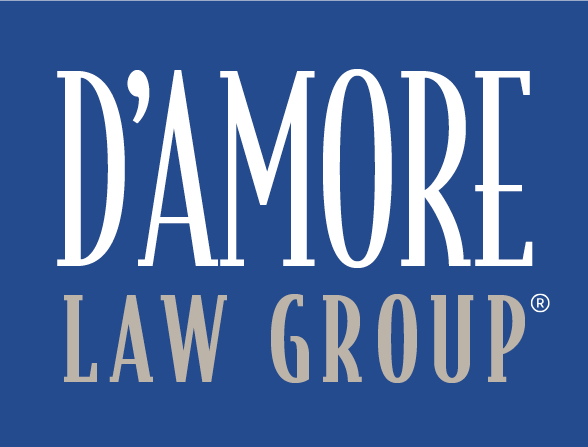Getting into an accident is a terrible experience. Even if you’re lucky enough to not get injured, dealing with insurance companies is an arduous process. And if your car...
Read more
Steps You Can Take to Correct Mistakes on a Police Report
When you are involved in an auto accident in Oregon or Washington and you call 911 from the scene, the responding officer should prepare a police report. In Oregon, this report is labeled, Oregon Police Traffic Crash Report, and in Washington, it is called a Police Traffic Collision Report.
The police report includes a lot of information, from the drivers’ personal information to the approximate cost and location of the damage for each of the vehicles involved. Usually, responding officers will complete these reports accurately; but, occasionally, mistakes are made.
Potential Mistakes on Police Traffic Crash and Collision Reports
When you receive a copy of a police report following an auto accident, it is important to review the report thoroughly in order to ensure that it is accurate to the best of your knowledge. While you may not be able to confirm all of the information contained in the report, you will probably be able to confirm most of it. You will also be able to spot any inconsistencies or other issues that make the report less than 100% accurate.
In most cases, mistakes on police reports result from simple mistakes, such as incorrectly transcribing information from a driver’s license or insurance card or checking the wrong box on the form. Other mistakes can result from misremembering or mishearing information relevant to the crash. For example, some potential mistakes you may notice when reviewing the police report from your auto accident include:
- Incorrectly recording the date or time of the accident
- Misspelling the name of the road on which the accident occurred
- Misspelling the name or address of one of the drivers
- Incorrectly recording a VIN, driver’s license number, or insurance policy number
- Checking the wrong box to confirm possible, suspected, or serious injuries
- Incorrectly marking the location of the damage to each vehicle
Other mistakes can result from misinterpreting information about the crash itself. For example, the responding officer may record the accident as a sideswipe, when in reality the other driver hit you at an angle or your crash was secondary (e.g., you collided side-to-side with one vehicle after being hit by another). The police officer could also inaccurately describe the details of the crash or omit certain key information (e.g., whether the other driver showed signs of being drunk or high).
Why Should You Try to Have the Police Report Corrected?
If you have been involved in an auto accident and you believe that the police report is inaccurate, why is it important to have it corrected? When investigating the accident and determining liability, the insurance companies will rely on the responding officer’s statements in the report. The insurance companies will not rely on the police report exclusively – they will still conduct their own independent investigations – but they will factor the responding officer’s conclusions into their determinations. So, if the police report is inaccurate, this could potentially have a negative impact on your insurance claim.
Similarly, if you need to take your case to court, the police report could be an important piece of evidence in your case. If the police report is accurate (and points to the other driver being at fault), then it could help prove your claim for damages. Conversely, if the police report contains mistakes, then you might not be able to use it to your advantage.
How Can You Correct an Auto Accident Police Report in Oregon or Washington?
You were involved in an auto accident, and you have noticed a mistake in the police report, what can you do to correct it?
Here are some tips for requesting a correction to a police report after an auto accident in Oregon or Washington:
- Locate the Case Number and the Responding Officer’s Contact Information on the Report – In order to request error correction, you will need the case number and the responding officer’s contact information. These should be located on the first page of the report.
- Be Prepared Before You Call – Before you call to request a correction, make sure you are prepared. Know what information specifically you believe needs to be corrected, and make sure you have some form of documentation to substantiate your request for a correction.
- Be Polite – When requesting a correction, be polite. Do not complain, and do not accuse the officer of doing his or her job poorly. Simply state that you believe the police report contains a mistake and explain why you would like a correction to be made.
- Do Not Make Assumptions – When dealing with the police, you need to be factual. If you are not certain that information on a police report is inaccurate, you should not request a correction based on an assumption or something you believe but cannot prove.
- Request the Correction Promptly – Generally, the sooner after an accident that you request a correction, the more likely you are to be successful. If the accident is fresh in the responding officer’s mind and he or she can recall the details of your accident, he or she may be more willing to reconsider the contents of the report.
It is important to understand that there is no guarantee that your police report will be corrected. You can request a correction, but it is up to the responding officer to decide whether he or she believes a correction is necessary. If you have unsuccessfully attempted to have a police report corrected, or if you are not comfortable requesting a correction yourself, you can hire an attorney to request the correction on your behalf.
Contact the Trusted Auto Accident Legal Team at D’Amore Law Group
D’Amore Law Group is a personal injury law firm that represents auto accident victims throughout Oregon and Washington. If the police report from your auto accident is inaccurate, our attorneys can help ensure that this does not have a negative impact on your financial recovery. To discuss your case in a free and confidential consultation, call us directly or request an appointment online today.
